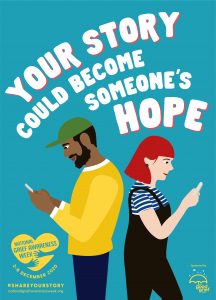
Books on grief are easy to find, but the more tricky thing is finding the right tone and content for your unique needs. Finding support during grief is likely to come in many forms, some people find talking very difficult and reading may be a more manageable option. You can find our five books for supporting children here x.
Here are a selection of books that may be useful for yourself or others. Do let us know of any you have found particularly useful, we are always keen to hear from our families on info@woodlandburialcompany.com.
Five Books on Grief
Megan Divine – It’s OK That You’re Not OK.
After the sudden, accidental death of her partner Megan Divine found our cultural attitudes to grief very unhelpful. As a therapist herself, she began to share her own experience and skills to create new ideas and discussions. She also runs writing courses and is very active on social media if her style appeals to you.
Allen Klein – Embracing Life After Loss.
This is a very positively focused book, looking at how to embrace joy and laughter during grief. It calls it a ‘gentle journey’ but depending on where you are in the process it may feel too soon.
Claudia Coenen – The Creative Toolkit for Working with Grief and Bereavement.
This is for more practical people, it contains number of worksheets and activities. It might be something that a group of people could work on together?
Matt Haig – Reasons to Stay Alive.
This isn’t strictly a book on grief, but it is a book about living and finding value in that. It may be more accessible because it isn’t directly about bereavement. Matt Haig shares his own experience of mental ill health and suicidal thoughts, as well as the reasons he found to stay alive.
Elizabeth Kubler Ross – On Grief & Grieving/On Death and Dying.
Thought of as the guru of bereavement Elizabeth Kubler-Ross and her research partner did extensive studies to come up with the idea of stages of grief, commonly experienced. She later wrote another book during her own long term illness on her experience of dying. It’s an emotional read. Both books deal with complex issues and are quite in depth.
What Next?
There are many, many books on the market, finding one that suits your individual situation may take some research. A good source of ideas is the Good Grief Trust, they also have a wealth of information and can signpost you to a specialist service if appropriate. We have been supporting their National Grief Awareness Week 2nd – 8th December.

